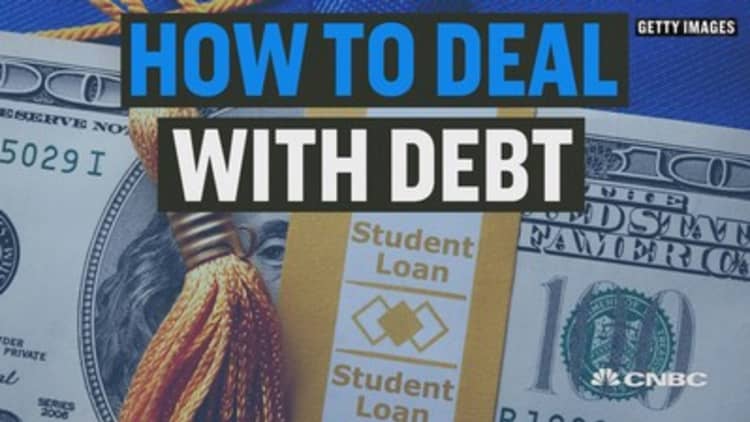
This year's crop of college grads are saddled with the heftiest student loan debt in history.
Seven in 10 seniors graduate with debt, owing about $29,650 per borrower, according to the most recent data from the Institute for College Access & Success.
All in, student debt reached a record $1.5 trillion in the first quarter of 2018, according to the Federal Reserve.
Although that debt burden — plus interest — is overwhelming by any measure, it can be particularly devastating for young adults getting their first taste of financial freedom.
But there is a way to cushion the blow.
Paying a little more than the minimum payment each month — by even $25 — will pay off your loan faster and you'll owe less interest, according to Antoine Oakley, a spokesman for lender Sallie Mae.
"Every little bit helps," he said.
For example, take an average loan balance of $30,000, an interest rate of 8 percent and a repayment term of 10 years (this illustration simplifies what is usually a mix of multiple loans, which can be federal and private with various terms):
If you pay your amount due every month:
- You'll make 120 monthly payments of $363.98
- You'll pay off your student loan in 10 years and cough up a total of $43,677.60.
If you pay an extra $25 a month:
- You'll pay off your student loan one year earlier and save $1,417.61 in interest.
To get a more specific picture, Sallie Mae's accrued interest calculator can help estimate how much you can save depending on your loan balance and interest rate. Other lenders have similar tools.
But you don't need to make an extra payment every single month to make a difference — you can do it every once in a while, or whenever your budget allows (think of applying birthday cash or bonuses).
And before beefing up a payment, make sure you understand the type of loan and your repayment options. You should also specify that those extra funds get applied to the principal of the loan and not to future interest payments. (However, if you have unpaid fees, the money must be applied there first.)
Finally, make those payments automatic. An automatic-payment program will decrease your chances of missing a month and may come with the added perk of an interest rate deduction on your loan — further decreasing your liability in the long run.
More from Personal Finance:
Crowdfunding, volunteering, trivia — and other unexpected ways to wipe out your student debt
For some, student loan debt is doubling, tripling, and even quadrupling
These are the ways student loans stop people from buying a house




